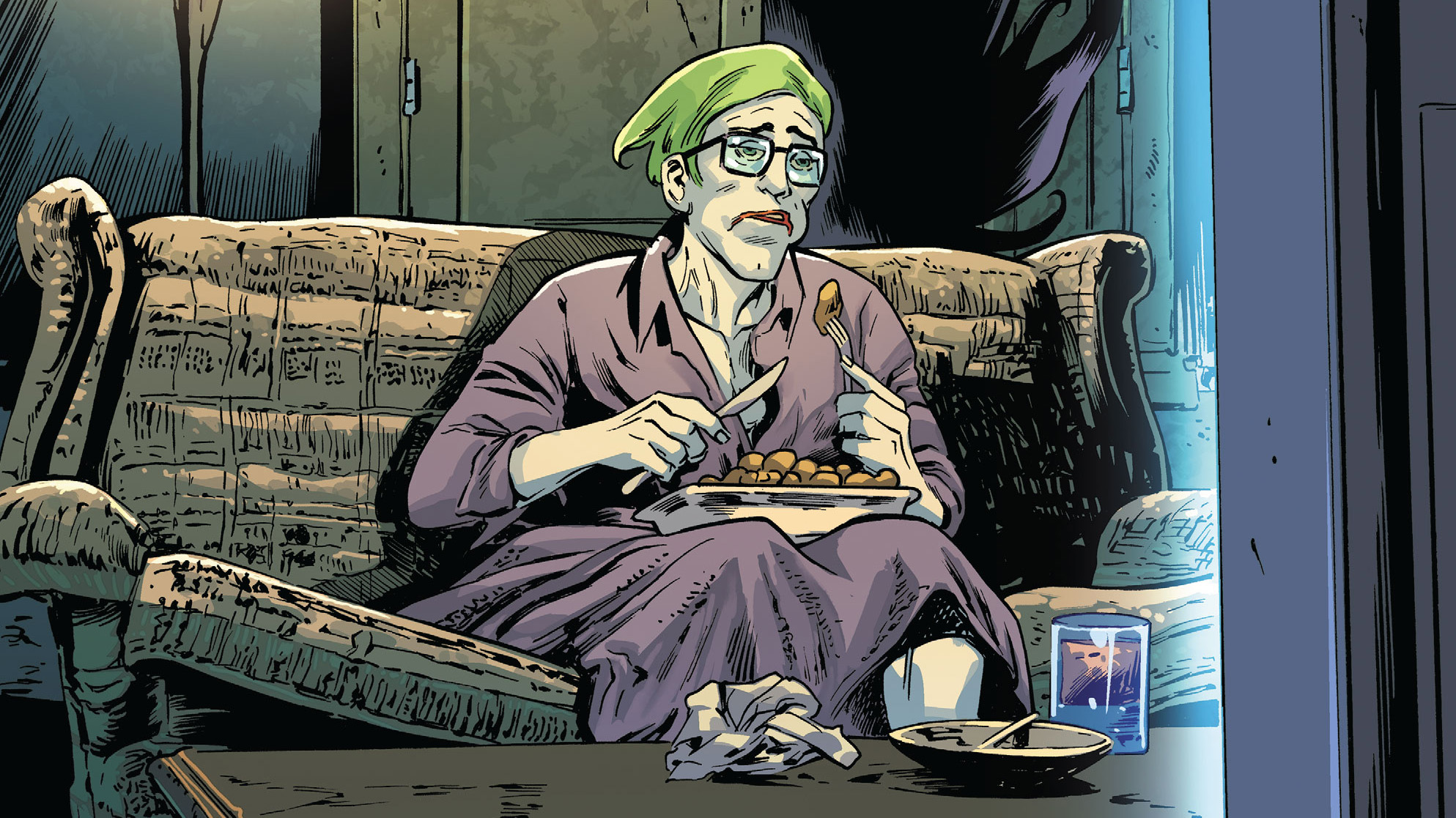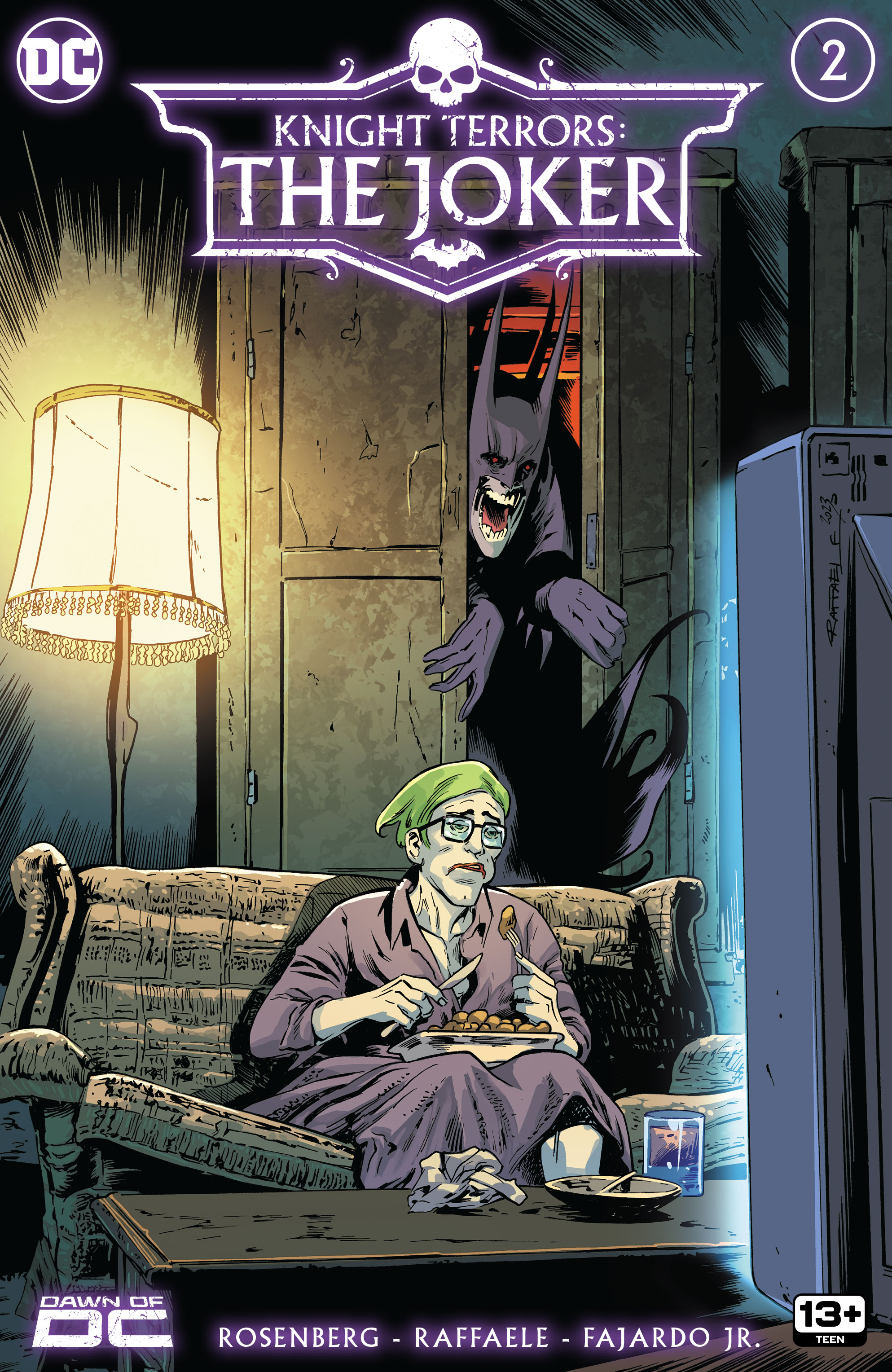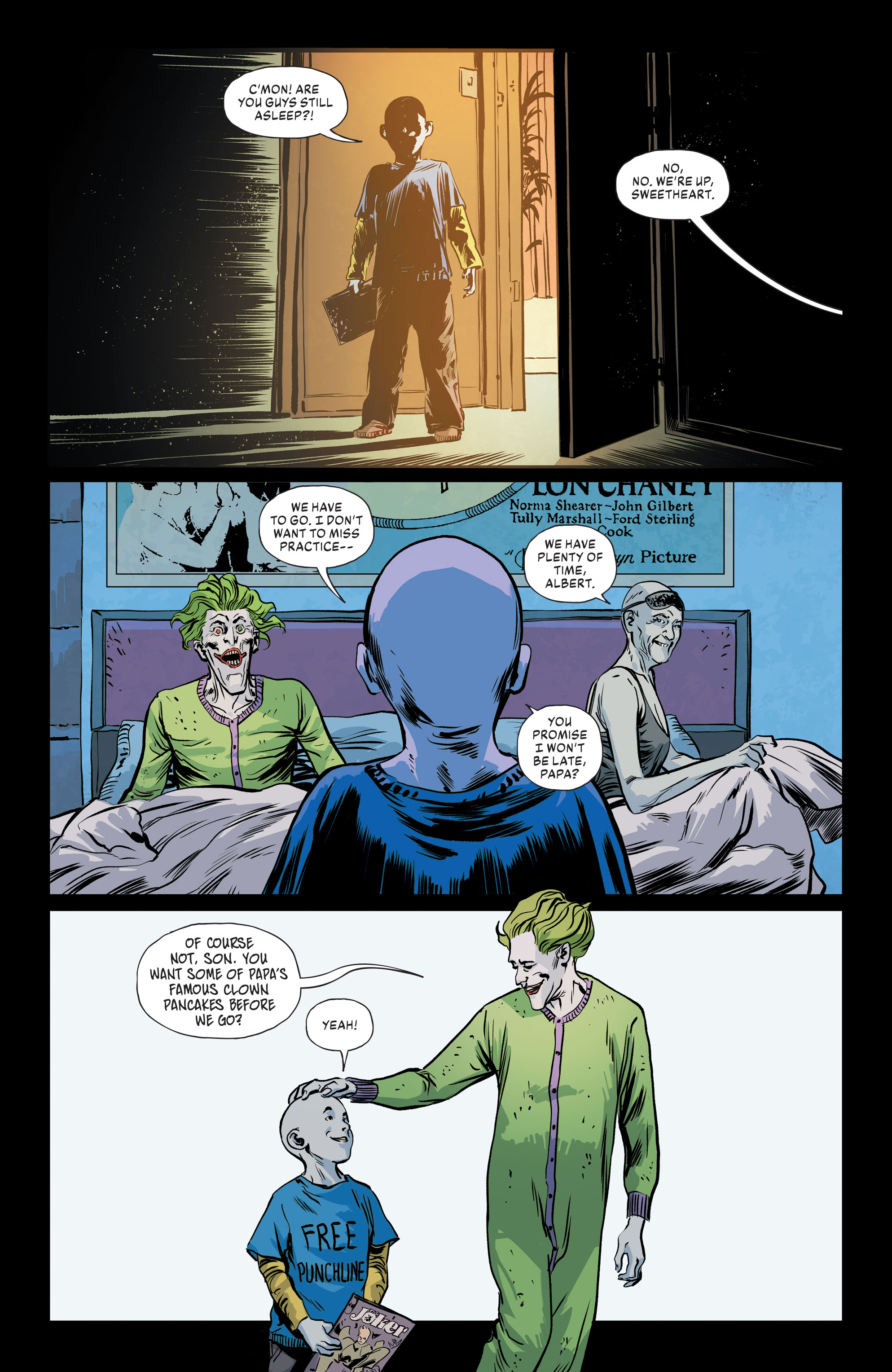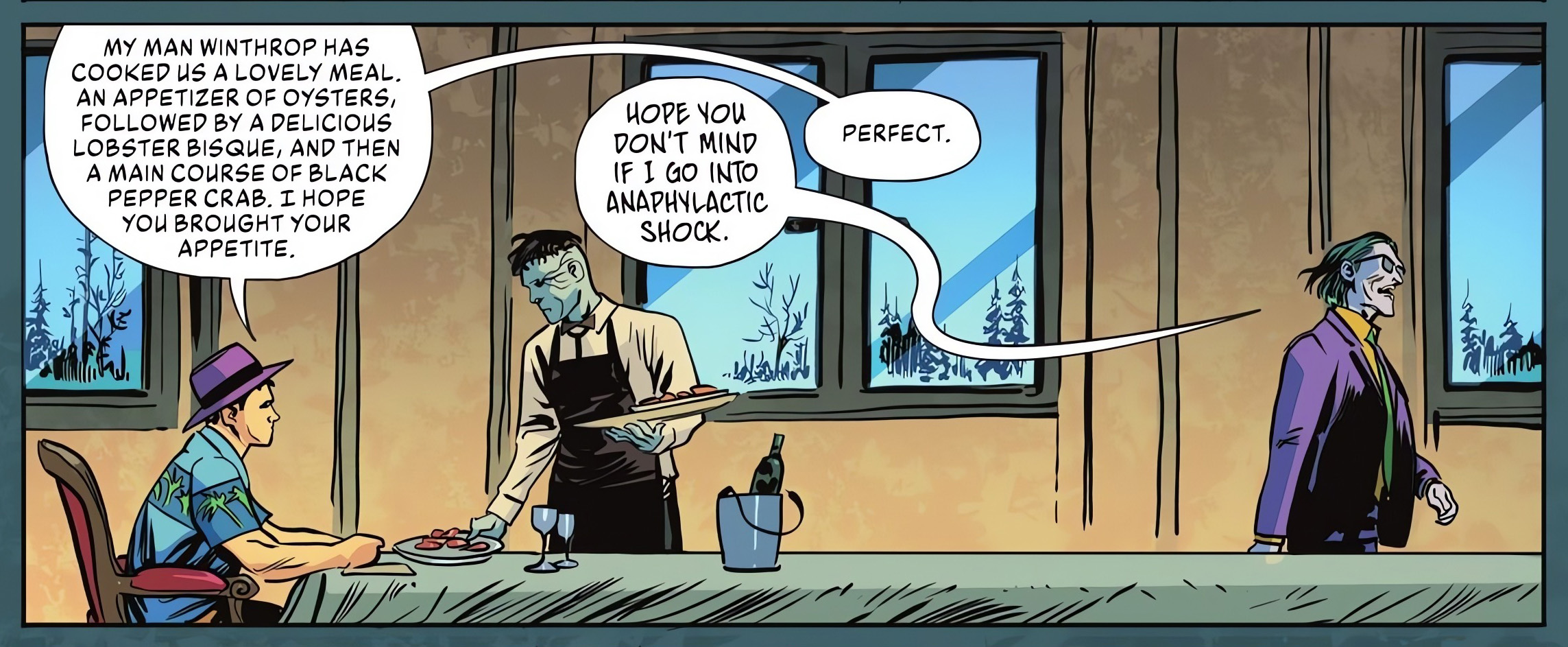The Joker is allergic to shellfish - and worried about some other stuff too
Knight Terrors: Joker #2 delves into the psycho's psyche

The second and final issue of DC's Knight Terrors: The Joker miniseries, published this week, delves deeper into the fantasy world conjured by new supervillain Insomnia.
In case you've not been keeping up with the Knight Terrors event, the DC world has been hit with a "Nightmare Wave" which has plunged all the heroes and villains into terrifying fantasy lands built around their worst fears - and even characters like the Joker are struggling to make sense of their new environment.
The series raises the question of what exactly the Clown Prince of Crime is afraid of. The conclusion of the two-issue arc, by writer Matthew Rosenberg and artist Stefano Raffaele, delivers a muddled answer, but does so in an entertaining and broadly amusing fashion. Spoilers from here on in...

Last month's #1 seemed to suggest that, in some ways, the Joker fears his own success - the joy of his twisted relationship with Batman is, in part, its endless nature. When he succeeds in actually 'killing' the Dark Knight (remember, this is simply a fantasy with no wider ramifications for actual Batman) he derives no joy from it. The game is over and it's ambiguous if he was even responsible for Bats' death - he slipped and fell off a roof. Very unsatisfying.
The Joker then grows increasingly listless. Sure, he's got the rotting corpse of his ultimate foe hanging up in his closet, but what's the point of being a supervillain if you don't have a mortal enemy to test you? One of his goons suggests killing Superman next, but that will never happen. Gaggy suggests executing Green Arrow instead, which simply elicits a bored "Yeah. I guess we could kill him. Whatever."
The Joker's life grows increasingly mundane. Eventually he gets an office job (working at Wayne Enterprises, inevitably) under the name Johann Kaiser, but he still can't quite find a way to feel comfortable, either as part of the workforce or in his sporadic attempts to cause chaos. His only solace appears to be watching reruns of Real Housewives.

So is the point here simply that the Joker fears the boredom and pressures of an everyday life? Possibly, but the comic subverts that by making "Johann" simultaneously both a diligent office worker who gets upset when nobody wants to hang out with him after work and still a violent psychopath who occasionally murders rival players at company baseball games.
Comic deals, prizes and latest news
Get the best comic news, insights, opinions, analysis and more!
#2 delves more into the mystery of who is protecting Gotham's streets in the Caped Crusader's absence. Somehow, Batman is dead, but still roaming the streets (again, it's a dream and follows its own disjointed logic). The Joker is keen to know who is under the cowl and only grows more obsessed when he learns that this new version of Bats is more violent than the original and likes to crack jokes while killing people - sound familiar?
Yes, it seems that another aspect of the Joker's fear is that one day either Batman will become too much like him or perhaps that he might start identifying with his enemy just a bit too much. The Joker's last line before he wakes up from his nightmare, after all, is a shocked cry of "We need him!"

In a sometimes confused comic the meaning of that line is at least clear. When he says "we" he really means "I". It's the Joker who needs Batman the most, as he always has, and a world without him is simply not worth living in.
That said, there is one other thing that the comic establishes as a real and tangible terror for the Ace of Knaves, something that could take him out of action for good. And that is: shellfish. He's allergic to it. It's a good thing they don't serve lobster bisque in Arkham.
Knight Terrors: The Joker #2 is out now from DC Comics.
Love that Joker? Here are the Clown Prince of Crime's best stories.

Will Salmon is the Streaming Editor for GamesRadar+. He has been writing about film, TV, comics, and music for more than 15 years, which is quite a long time if you stop and think about it. At Future he launched the scary movie magazine Horrorville, relaunched Comic Heroes, and has written for every issue of SFX magazine for well over a decade. His music writing has appeared in The Quietus, MOJO, Electronic Sound, Clash, and loads of other places too.


